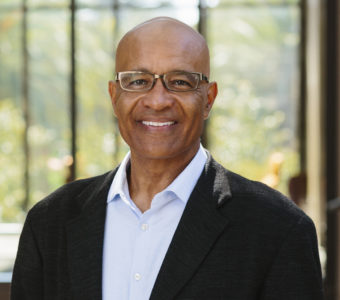Elite Universities and the US News Rankings
When I applied to law school in 1991, I submitted applications only to the most venerable institutions—Harvard and Yale (omitting Stanford because I had just completed my undergraduate studies there). Since then, generations of prospective law students have done the same. And, frankly, as a Stanford professor I have often advised prospective law students to consider a school’s prestige in deciding where to apply and where to enroll. I have also witnessed up close how schools strive to maintain or improve their place in the status hierarchy.
The widely known U.S. News ranking system has helped tilt schools away from social mobility and service and toward prestige, rewarding the wrong aspects of legal education and promoting perverse incentives for schools. The rankings, for example, have penalized schools for providing financial support that enables students to pursue public service careers, and have created disincentives for schools to admit students from disadvantaged backgrounds, especially if their grades and test scores are less than stellar.
I applaud the decision by Yale and other elite law schools, including Stanford, my professional home, to no longer participate in the annual U.S. News law school ranking. While that withdrawal is long overdue, it is not nearly sufficient to upend the status quo.

The ranking – and the obsession with it by students and schools alike — is a symptom of a problem not the illness itself. The ranking system less distorts institutional priorities than reflects them. That’s why the recent decision of many prestigious law schools to forsake the U.S. News ranking will, by itself, do little to transform legal education in the ways that society needs.
The problems with elite higher education neither start nor end with U.S. News. That ranking system may reflect some of the worst features of elite legal education, but it did not create them, nor it is the primary source shaping the practices of law schools. U.S. News has been successful for more than 30 years — withstanding many challenges from competing ranking systems — in part because it reflects what large numbers of parents and students want, and what, for the most part, institutions try to give them. Students have become less focused on education and more on the sorting that schools perform. Attendance at a top law school marks one as a top student, which opens a pathway to money and status.
Many law schools channel students into highly remunerative fields like corporate law, and not only because that’s what students tend to want. A school also stands to benefit from producing high-earning graduates, as most donors are alums. These dynamics create a cycle that may seem virtuous from the perspective of the institution, but less so from the perspective of society.
Law schools tend to admit academically accomplished students from privileged families because the schools reap dividends from their presence. Such students don’t need financial aid, which can be a drain on the budget of even the wealthiest institutions. And every school craves high academic achievers (even if that means excluding deserving applicants from disadvantaged backgrounds) because professors enjoy teaching them, and their presence in the student body is itself a source of status, which attracts the donors on which elite schools depend.
The way to enroll the highest achieving student body is to attract as many applicants as possible – and then deny admission to most of them. Far from discouraging prospective applicants, a high rejection rate can actually attract prospective students by making admission seem even more valuable, a perception that benefits the institution. This dynamic helps to explain why most elite private law schools haven’t enlarged their student body in generations, even as the number of prospective law students has increased many times over.
Hopefully, the movement to reject the U.S. News ranking system is a prelude to the reform of some of these practices.
Society would benefit if elite law schools educated more students — especially more students from disadvantaged backgrounds — and if more of their graduates devoted themselves to the public interest rather than the private interests of the nation’s wealthiest individuals and institutions.
Even those top law schools, such as Yale, Harvard and Stanford, that are nominally private should feel an obligation to further the public interest. After all, they rely heavily on philanthropic support, which would diminish dramatically if it weren’t for the state and federal tax benefits those donors receive.
The transformation of legal education will require much more than declining to participate in the annual survey used to create law school rankings. It will require, over time, a remaking of the institutions themselves, with a new mix of incentives, and a rethinking of the aspirations and priorities that drive institutions and families alike. Only then will our nation’s law schools, and higher education more generally, fulfill their potential to serve society in ways that are so desperately needed.
Ralph Richard Banks (BA ’87, MA ’87) is the Jackson Eli Reynolds Professor of Law at Stanford Law School, the co-founder and Faculty Director of the Stanford Center for Racial Justice, and professor, by courtesy, at the School of Education. He is the author, most recently of Is Marriage for White People? How the African American Marriage Decline Affects Everyone.
